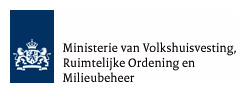WECF at COP 22: “Why do we need moustaches to be heard?”
On Thursday, November 10 2016 the Women and Gender Constituency hosted an interactive ACTION at COP22 to highlight institutionalised barriers to women’s participation in climate decision-making at all levels
11.11.2016 |

Members of civil society highlight the institutionalized barriers to women’s participation in climate decision making, saying people should not need moustaches to be heard, cop: Annabelle Avrile (WECF
On Thursday, November 10 2016 the Women and Gender Constituency of the UNFCCC hosted an interactive ACTION at COP22 to highlight institutionalised barriers to women’s participation in climate decision-making at household, community, institutional, national, regional and international levels.
Despite women’s disproportionate vulnerability to climate change, women are marginalised from climate decision-making bodies and generally do not hold positions of leadership or authority. Civil society will demand that governments and institutions ensure women’s full and equal participation in all levels of decision-making, and reach the goal of gender balance through targeted resources and capacity building efforts. Civil society will also demand that structures of power are transformed with participatory, rights-based decision-making processes for climate policy that are inclusive of all peoples, particularly women and men in frontline and Indigenous communities in the economic South and North. Women demand to be equally and fully engaged in all levels of climate change decision-making! We should not need moustaches to be heard!
Participants were Climate justice and gender equality advocates of all ages from around the world: Africa, Asia, South and Central America, Middle East, North America, Europe, Pacific island states, Australia and Aotearoa/New Zealand.

Women experience significant adverse effects of climate change due to persistent gendered inequalities; particularly poor women of colour, indigenous women, women with disability, LBTQIA+ women and other marginalised women. Women must be able to exercise our rights as citizens to participate in local, national and international leadership, decision-making and policy development about climate change to ensure that climate policy does not further entrench gender inequality. However, global and local climate change decision-making regarding climate policy, planning and management is dominated by men. Women are underrepresented in local governments and national parliaments, are significantly unlikely to work in ministries of finance, environment and science, technology and research, and do not participate equally in key formal policy spaces.
Research by Women’s Environment Development Organisation shows that at the United Nations Framework Convention on Climate Change (UNFCCC), women account for around 33% of all national Party delegates and around 20% of the Heads of Delegations, with even lower participation of women from Least Developed Countries, African Group and OPEC countries.
The Women and Gender Constituency (WGC) therefore called for parties to urgently extend and upscale efforts through the Lima Work Programme on Gender to increase participation of women in delegations, and transform institutional practices to elevate grassroots organisations and inclusive decision-making processes in climate policy. Maria Nailevu of Diverse Voices for Action (DIVA for Equality) of Fiji says “despite a gender balance decision at the COP7 here in Marrakesh 15 years ago, we still have very few women chairing in the climate negotiations, and grassroots women’s priorities are not taken into account in national climate plans. We need the Gender decision here at COP22 to give us a Gender Action Plan that will ensure climate actions are not at the detriment of women’s lives and livelihoods. That is why women at COP22 are wearing moustaches today, as it seems to be the only way that we can be heard”.
The Women and Gender Constituency (WGC) is a civil society observer – one of the nine stakeholder groups – of the United Nations Framework Convention on Climate Change (UNFCCC). Established in 2009 and granted full constituency status in 2011, the WGC consists of 16 women’s and environmental civil society organizations, who are working together to ensure that women’s voices are heard and their rights are embedded in all processes and actions of the UNFCCC framework, making gender equality and women’s human rights central in the fight against climate change. The Women and Gender Constituency, consisting of a broad variety of national network organizations, represents hundreds and thousands of people across the globe, with advocates from over 60 countries.
Related News
#Ruralwomen: join our Women2030 campaign!
15.10.2018
What to expect from the climate talks that resumed in Bangkok this week?
COP24: second intersession of the climate change negotiations 2018, Bangkok, Thailand
07.09.2018
Together for sustainable sanitation and water security worldwide!
Stockholm, 26-31 Aug 2018: WECF participated in the World Water Week 2018 to further support the worldwide implementation of SDG 6
01.09.2018
WECF at HLPF 2018
"While HLPF is a great space for feminist solidarity, networking, awareness raising and knowledge sharing of best practices, you cannot really shake the feeling of: are we really doing enough to achieve the Sustainable Development Goals?"
07.08.2018






































